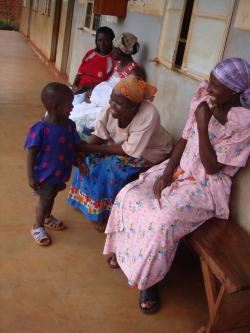Access

Barriers existed at every stage of the care pathway, especially for the poorest families in society. Many could not or did not access care of any kind for children with malaria.
Of those who did seek treatment, a high proportion accessed inadequate care through the informal sector. Of those who accessed the informal sector, the majority with malaria frequently received no antimalarial, and of those who did, the antimalarial was often a locally ineffective drug, or was given at inadequate doses. Even where patients reached a formal healthcare facility where free antimalarials existed, only a minority was given effective antimalarials.
ACT Now For a Malaria Free World from ACT Consortium on Vimeo.
For maximum public health impact of ACTs, it was therefore essential that a range of potential strategies for ACT delivery were carefully evaluated to assess where ACTs should be provided, how they should be delivered and who should receive them.
However, the evidence base on ACT delivery strategies was very limited. Most countries were initially deploying ACTs in formal health care facilities only, although in many settings such facilities saw only a minority of febrile cases, with an equal or greater number using shop-bought drugs. There was therefore an urgent need to test interventions to improve the quality of facility care, and to extend ACT availability beyond the formal health care sector.
Research questions addressed by the consortium
- How can ACT delivery through health care facilities be optimised, and does this lead to increased uptake and access?
- What is the appropriate role of community management in ACT delivery outside the formal healthcare sector?
- What is the appropriate role of the private and non-governmental sector, including private drug retailers in ACT delivery, and how can this be best utilised to deploy ACTs and other new antimalarials?
Learn about our projects and resources on improving access to ACTs, or download a summary of our research findings.

